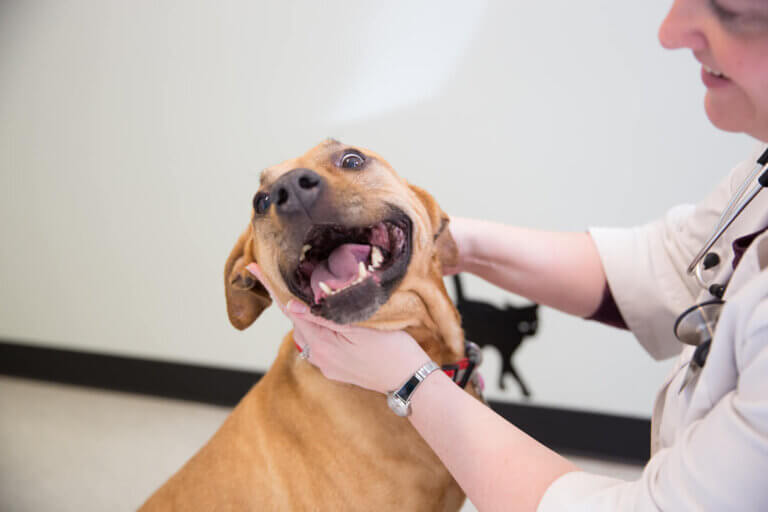Dogs need clean teeth as much as they require exercise and nutritious food. Because poor oral health in canines is directly linked to heart, liver, and kidney failure, making sure their mouths are healthy is vital to their well-being. According to the American Kennel Club, about 70% of dogs will show signs of periodontal disease by the time they’re three years old. It’s not all bad news, though–there are a few easy tips to achieving top dental hygiene for your pup.
1. Use Canine Toothpaste and Brushes
Canine brushes are designed with special handles to reach the tough spots in your dog’s mouth. More importantly, however, they come with soft bristles to avoid irritating their gums. If you’re in a pinch, children’s toothbrushes are gentle enough to do the trick. Another brushing essential is canine toothpaste, which comes in tasty meaty flavors your dog will love. We recommend brushing at least two or three times a week, but that will ultimately depend on your dog’s breed and their current oral health.
2. Add Dental Powder to Their Food
An easy hack to optimal dental health is through dental powder. If your dog doesn’t love getting their teeth brushed, you can inconspicuously hide this in their food to get the job done. It doesn’t compensate for brushing sessions though, so don’t use this trick alone. Always check with your veterinarian before giving your dog these products.
3. Give Them Dental Chews
These snacks are designed with crevices to clear out plaque and tartar buildup while providing nutrients for strong and healthy teeth.
4. Visit Your Veterinarian for Professional Teeth Cleanings
Home care may not be enough on its own to fight tooth decay and gum disease. By taking your puppy to the vet once or twice a year, you can help plan cleanings as recommended to get rid of plaque and tartar that brushes can’t scrub off while also detecting signs of gingivitis or periodontal disease early on.
For individualized information on how to care for your dog’s dental needs, contact your local veterinarian.


